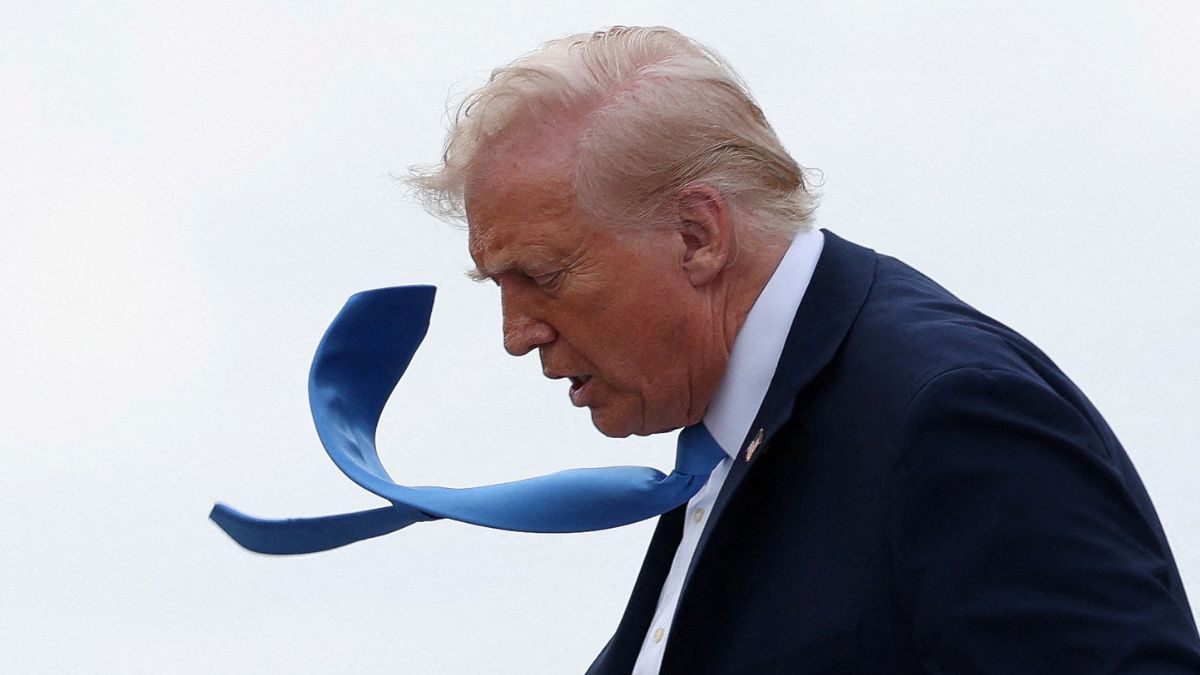US President Donald Trump on Wednesday declared a “national economic emergency” to deal with America’s whopping $1.2 trillion trade deficit. Trump unveiled reciprocal tariffs on 60 nations, the highest imposed by the US since 1872. In a statement following Trump’s address, the White House said that the massive US goods trade deficit has led to the “hollowing out of” the country’s manufacturing base.
“Today, President Donald J. Trump declared that foreign trade and economic practices have created a national emergency, and his order imposes responsive tariffs to strengthen the international economic position of the United States and protect American workers,” the White House said in a statement.
Trump administration argued that the current situation of the country’s manufacturing sector is resulting in a lack of incentive to increase advanced domestic manufacturing capacity, undermining critical supply chains and rendering the US’s defence-industrial base dependent on foreign adversaries.
‘Taking back sovereignty remains the main goal’: White House
It is pertinent to note that the president announced the Wednesday tariffs under the International Emergency Economic Powers Act of 1977 (IEEPA) to address what the POTUS called a national emergency.
“These tariffs will remain in effect until such a time as President Trump determines that the threat posed by the trade deficit and underlying nonreciprocal treatment is satisfied, resolved, or mitigated,” the White House said in the statement. In the statement, the White House reiterated that they refuse to let the United States being “taken advantage of”.
They argued that these tariffs are necessary to " ensure fair trade, protect American workers, and reduce the trade deficit—this is an emergency." “Pernicious economic policies and practices of our trading partners undermine our ability to produce essential goods for the public and the military, threatening national security,” the Wednesday statement reads.
Impact Shorts
More Shorts“Today’s action simply asks other countries to treat us like we treat them. It’s the Golden Rule for Our Golden Age,” the White House furthered. Trump administration made it clear that the United States would no longer put itself last in terms of international trade. “Access to the American market is a privilege, not a right,” the government argued.
In the Wednesday address, Trump imposed a blanket tariff of 10 per cent on all nations trading with the US. This will come into effect on April 5, 2025, at 12:01 a.m. EDT. Apart from this, he imposed individualised reciprocal higher tariffs on 60 nations, including India, which received a so-called ‘discounted’ tariff of 26 per cent. These individual tariffs will take effect on April 9, 2025, at 12:01 a.m. EDT.
In the past, Trump has used these tariffs as bargaining tools with other nations. It is not clear whether he intends to do the same or not. Meanwhile, other large economies like China, European Union, and Japan already mentioned that they would retaliate before the Tariffs were even announced. Hence, it will be interesting to see the global reaction on Trump’s fiery speech.


)

)
)
)
)
)
)
)
)



